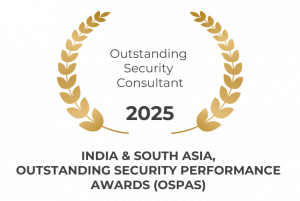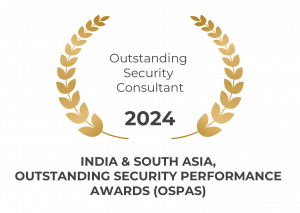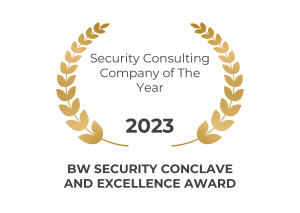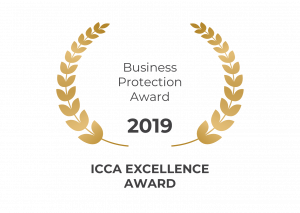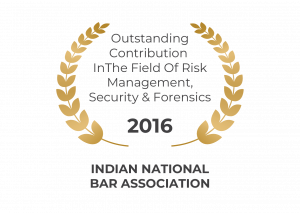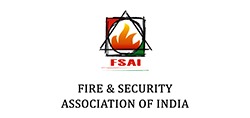Over the past decade, Hyderabad has displayed tremendous growth in warehouse and logistics activity. One of India's business centres and the IT capital of India, the city has many distribution centres, warehouses and logistics operations that serve both domestic and international market sectors. However, with growth also comes significant security concerns, and as always, asset protection will be critical.
Comprehending Asset Protection in Contemporary Warehousing
Asset protection today is not just security. It includes a comprehensive approach that focuses on protecting physical assets, much like traditional security, but it also captures protecting inventory, equipment, data, and human resources. In Hyderabad's ever-developing logistics supply chain landscape, adequate asset protection not only affects operational efficiency but also affects customer confidence and the overall profitability of a warehouse. Modern warehouses have an array of different security risks that escalate into a variety of security risks on the organisation's supply chains: theft, vandalism, trespass & civil unrest, cyber threats, and a breach of cybersecurity. Even natural disasters are looked upon as a security threat! Potentially, every node of the supply chain is connected. If a security breach occurs, the consequences could impact the entire supply chain.
Critical Assets Protection Key Elements
1. Physical Security Infrastructures
The priority in an asset protection program is strong physical security. Some areas to consider include:
Perimeter Security
Installing a good line of fencing, automated gates, and barrier systems around warehouse facilities. Motion sensors and infrared cameras installed along the perimeter will give you an added line of defence with early warnings of breaches.
Access Control Systems
Using biometric scanners, keycard systems, and visitor management systems to limit access to only approved personnel in defined areas, controlled segregation of areas can be maintained by security clearance through multi-level access controls.
Surveillance Solutions
The facility using high-definition CCTV surveillance systems with night vision will provide real-time information, and all of the newer systems have real-time monitoring, facial recognition capabilities, and automated alerts that allow contracted security to respond to an incident while it is in progress.
2. Technology Solutions
Asset Management
Technologies such as RFID and bar-coding systems provide real-time visibility into both the location and movement of assets and, in turn, decrease the risk of theft and improve the accuracy of asset management.
IoT Sensors
Internet of Things (IoT) sensors can monitor environmental conditions (temperature/humidity) and equipment use, while also detecting unauthorised movements, and alerting you in real-time when items or equipment have been moved from their original location.
Cybersecurity
Digital assets are of the same value as physical assets. In trying to protect and secure data and corporate information, we need firewalls, encryption, regular updates on digital software, and most importantly, employees who recognise how to avoid data breaches and cyberattacks.
3. Human Resource Security
Screening of employees, contractors and vendors is critical. Regular security awareness training programs give employees an understanding of their part within the larger idea of facility security holistically. Building a security awareness culture helps employees recognise and report suspicious activities on time.
Wi Jungle is also one of the top cyber forensics companies in India, renowned for developing and marketing a unified cybersecurity platform to organisations. They provide companies with services such as data leakage prevention, content filtering, vulnerability assessment, anti-malware and ransomware protection, and intrusion detection & prevention systems.
Asset Protection in Hyderabad: Local Considerations
Hyderabad has natural characteristics that will pose local security issues:
Threat of Weather: Hyderabad has defined weather phenomena, including a monsoon season, and the weather can be severe; mainly damage to assets and disruption of operations accompany major weather events. Weatherization and preparedness for emergencies are in order.
Traffic and Vehicle Security: The sheer number of heavy trucks in industrial areas requires a higher level of attention to loading docks and controlling access to vehicles.
Local Compliance: Follow local laws as much as possible; your organisation will need to stick to safety regulations, labour laws, and even security regulations to minimise disruption.
Cultural Sensitivity: The security function must adhere to, when possible, local customs and practices to be effective.
Best Practices for Implementation
Risk-based approach
Start by identifying what the most valuable assets are in the operation, and also what your most frequent vulnerabilities are, and then finish by taking an overall risk assessment of your very own unique operational situation. Once you have assessed your unique risk situation, make an investment in security systems based on either the potential impact or likelihood of occurrence.
Multi-layered security
Use more than one level of security instead of just one. The advantage of using more than one level of security is that if one level fails, you still have security redundancy in place
Audit and maintenance
You should not forget that all security systems need maintenance. This includes conducting audit maintenance for your security system to ensure there are no gaps in coverage and that systems are operative.
Staff training
Providing regular training to staff keeps the employee aware of the security procedures, emergency procedures and their responsibility related to the use of the facilities.
Staff engaging in an all-inclusive process for preparing for emergencies
Create an all-inclusive emergency response plan that deals with any facet of theft loss, fire concerns, natural disasters, burglaries, security breaches, etc., and rehearse it regularly. Adequate asset protection for companies in logistics and warehousing in Hyderabad requires a layered system that combines physical protection, technological responses, and trained personnel. Asset security not only reduces the amount of loss, but it also provides other benefits such as lower insurance rates as well as instilling customer confidence and compliance. As the city of Hyderabad becomes an even larger logistics hub, companies that consider security as part of their core operations will be better equipped to achieve sustainable growth.




























